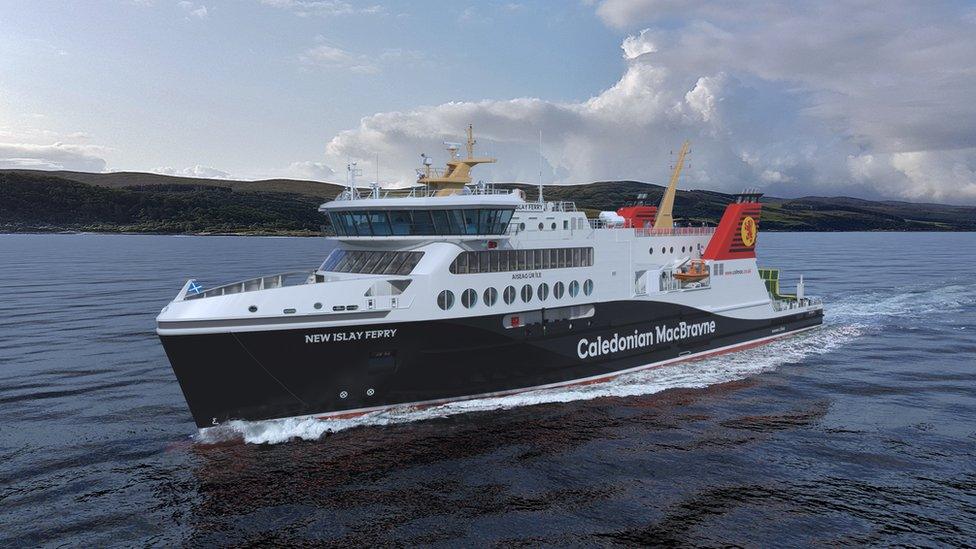CalMac's race to keep its ageing fleet afloat
- Published
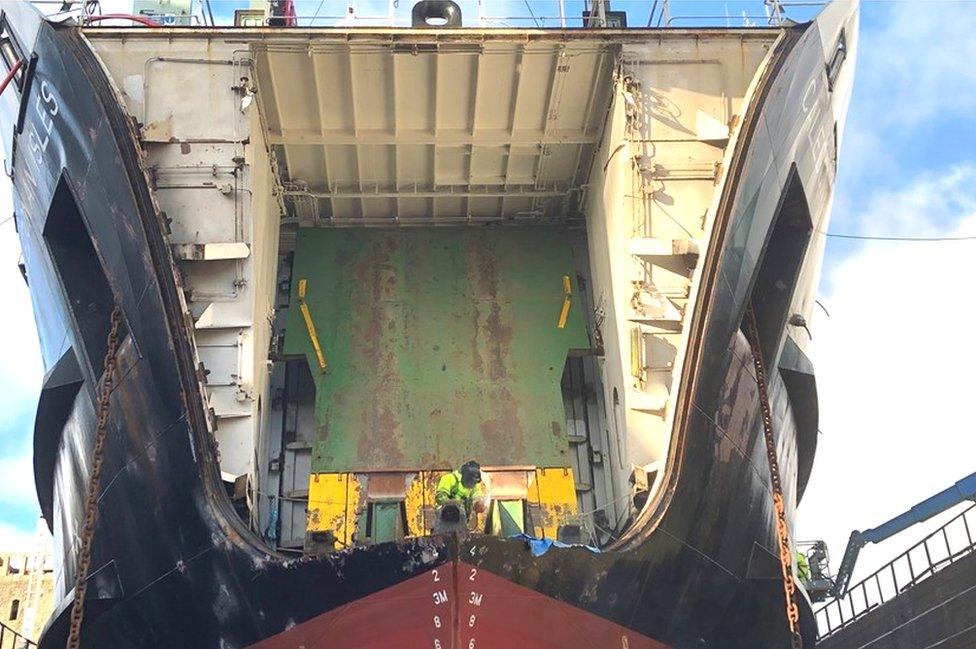
The MV Caledonian Isles undergoes its annual service
With a third of its ferries now more than 30 years old, CalMac's maintenance budget is soaring.
Long delays in the delivery of new CalMac ferries pile extra pressure on the operator, as island communities vent their anger at disrupted services.
Chief executive Robbie Drummond says the company is having to operate this fleet beyond its life expectancy.
"We have no spare vessels in the summer period," he said.
"But the same applies in winter. What we need in the future is new vessels."
Dales Marine dry dock in Greenock is a hive of activity. The Arran ferry, MV Caledonian Isles, sits high and dry, balanced on blocks.
Dozens of contractors in hard hats and boiler suits work around the vessel.
The ship's bow doors gape open. Sparks fly, as welders work on the vast steel structure.
They're operating round the clock.
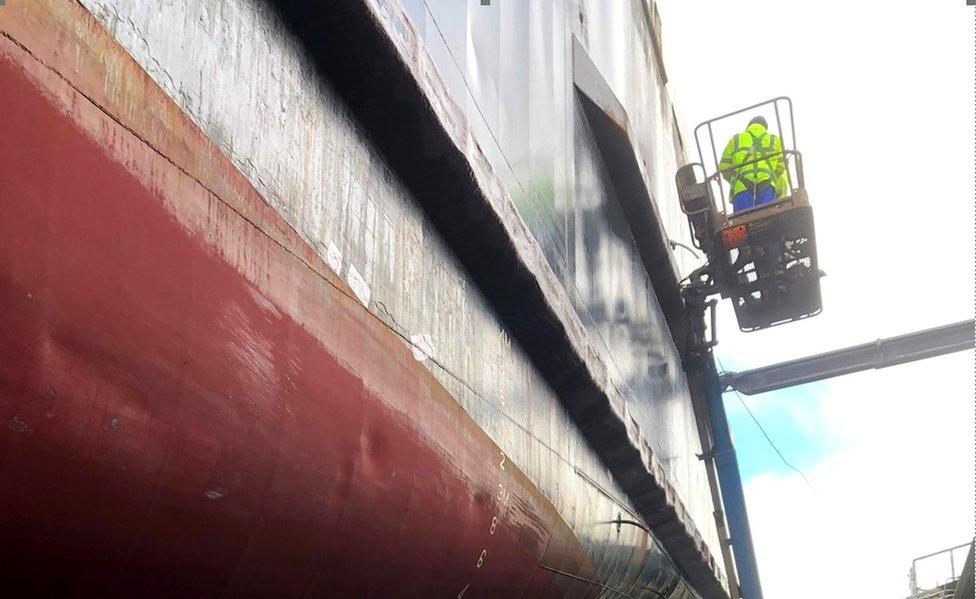
CalMac has just two weeks to carry out this annual service. Then the vessel is needed back at sea, returning to work on the Arran to Ardrossan run.
But this is no simple overhaul. There's more than £1m of work to be done in a very short time.
For a start, the ship's huge engines need a service.
Little wonder, as they operate 18 hours a day, all year round. The vast cylinder heads and turbochargers are getting an overhaul.
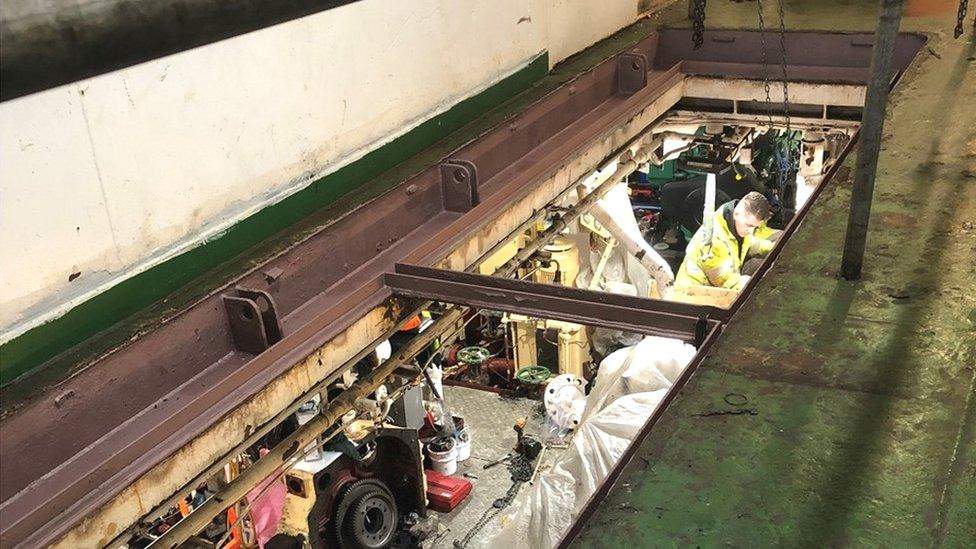
The ship's huge engines undergo a service
They've had to remove one of the huge bronze propellers, after finding two of its blades are dented, perhaps by marine debris.
A whole team is required to gently remove it.
At least 15 tonnes of ageing steelwork throughout the vessel needs repaired or replaced. The last time the vessel was in dry dock, it was 25 tonnes.
Much of this work is down to the age of the vessel.
The MV Caledonian Isles is almost 30 years old - and it's still not the oldest member of the fleet.
Ageing ferries have caused CalMac's maintenance budget to soar.
Chief Executive Robbie Drummond says the ferry operator spent about £20m five years ago on maintaining 35 vessels. This year it will spend more than £34m.
"The average age of the fleet is now 24 years - 38% of our fleet is now over 30 years old," he said. "The general life expectancy of vessels is 25-30 years.
"So we're having to operate this fleet beyond its life expectancy. We can continue to do that, but it requires investment in maintenance and upgrades."
Each year, all of CalMac's 35 ferries sail in to dry dock for maintenance.
The ageing fleet poses a major challenge for CalMac's head of technical operations, Richard Colley.
"The main engines on this vessel are no longer being produced. But that is the consequence of its age," he said.
"We have to try to source the spares. They're not being produced any more. If we do need new spares, we need to get them specially made for us.
"We have to take care of the ladies. And effectively this is a very old lady now."
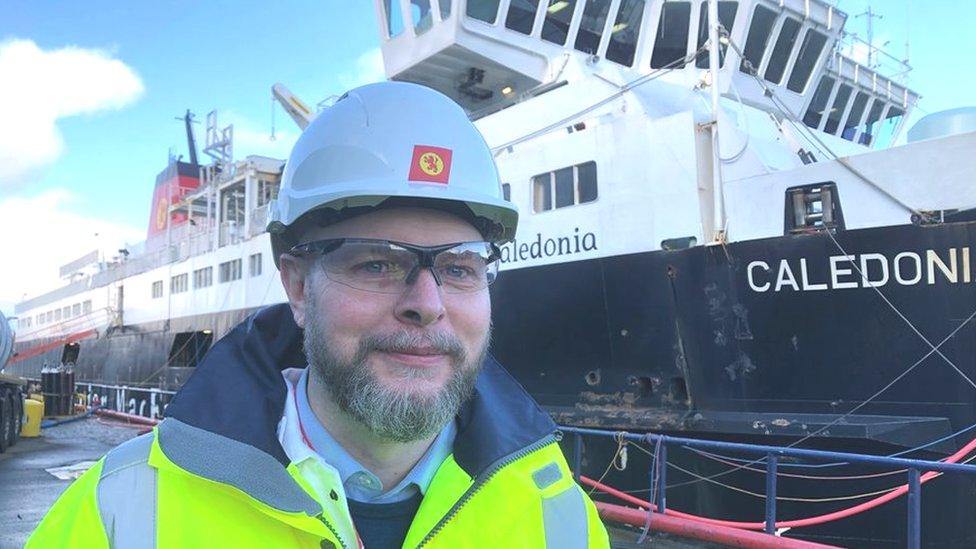
Richard Colley says the Caledonian Isles is "a very old lady now"
The two most famous ferries in Scotland - Glen Sannox and the as-yet-unnamed Hull 802 - remain at Ferguson Shipyard on the Clyde.
They should have been delivered to CalMac years ago.
The delay has been the focus of furious debate and three inquiries in the Scottish Parliament - and leaves CalMac short of vessels, and short of options.
The west coast operator has no spare vessels so it continues to squeeze all it can from the existing fleet.
Frustration on Arran
Mr Drummond admits the whole network is stretched, but adds that the operator is now expecting six major and 10 smaller vessels.
"So over the course of the next few years we will start to see the newer vessels coming into the service, which will improve our resilience and provide extra capacity," he said.
But the first of those vessels - due on the Islay run - won't enter service until October 2024.
On Arran, frustration lingers.
The community there has borne the brunt of delays and cancellations caused by unreliable ferries.
Sam Bourne, chair of the Arran Ferry Action Group warns: "The lead time from procurement to delivery of new vessels is in the order of three to four years.
"So the challenge will be this winter, the upcoming summer, the next 12-18 months, before we start to see these new vessels entering service.
"It's going to be difficult."
Related topics
- Published13 May 2022
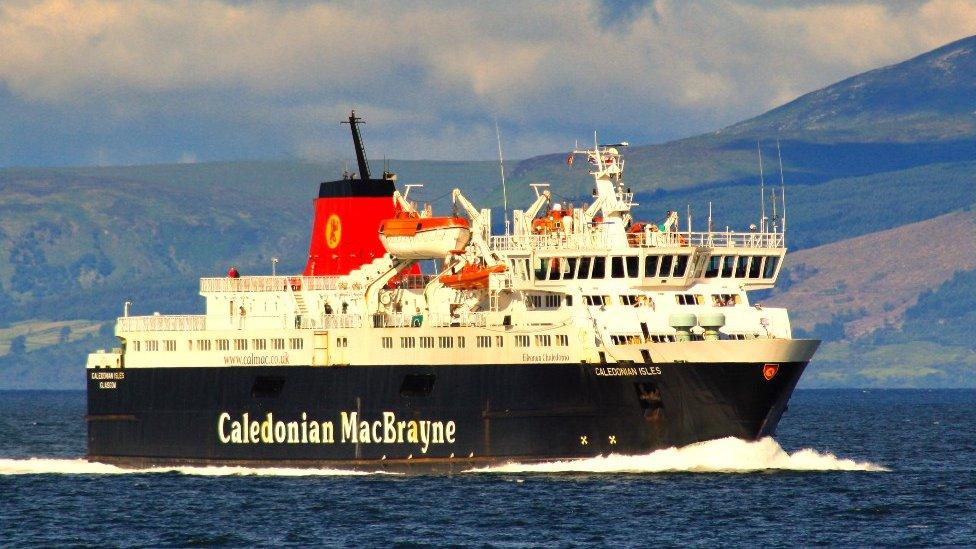
- Published12 January 2023
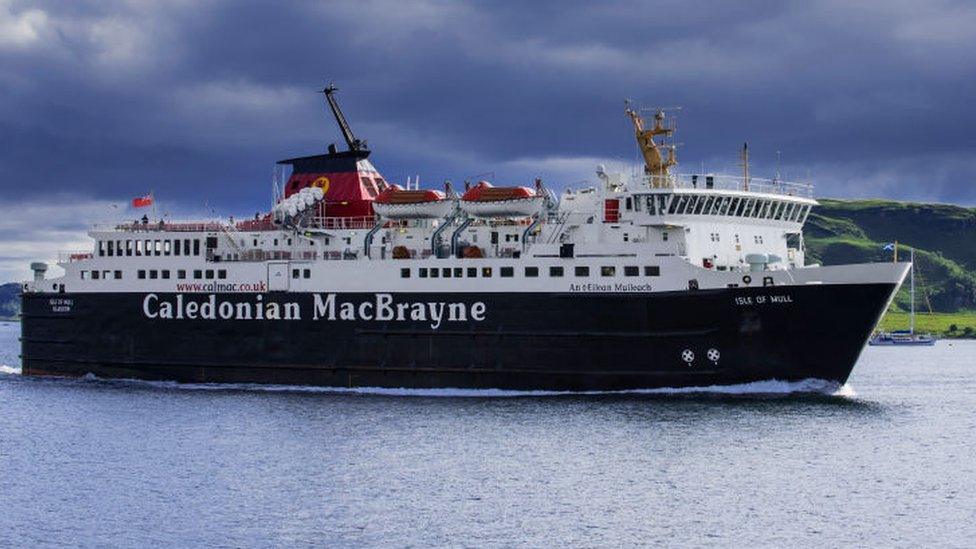
- Published23 December 2022
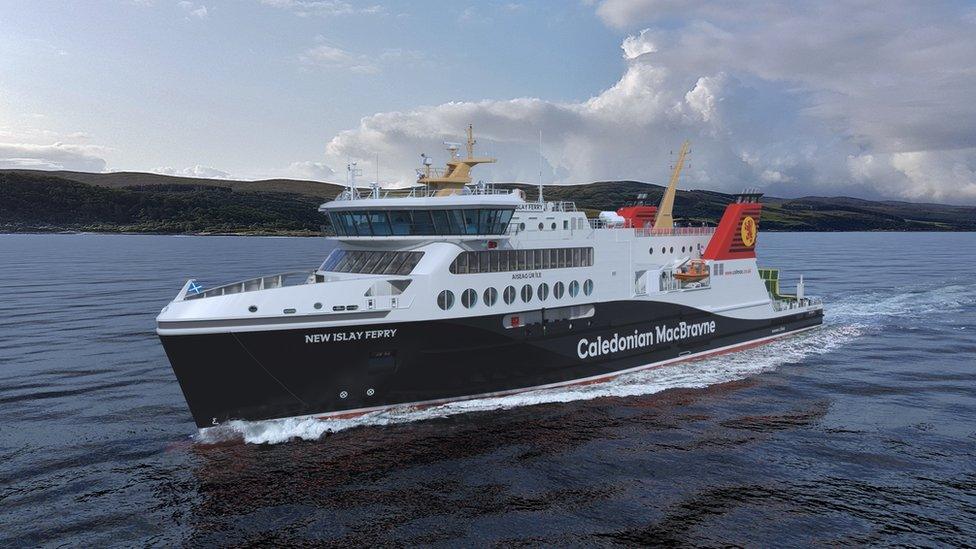
- Published26 October 2022
